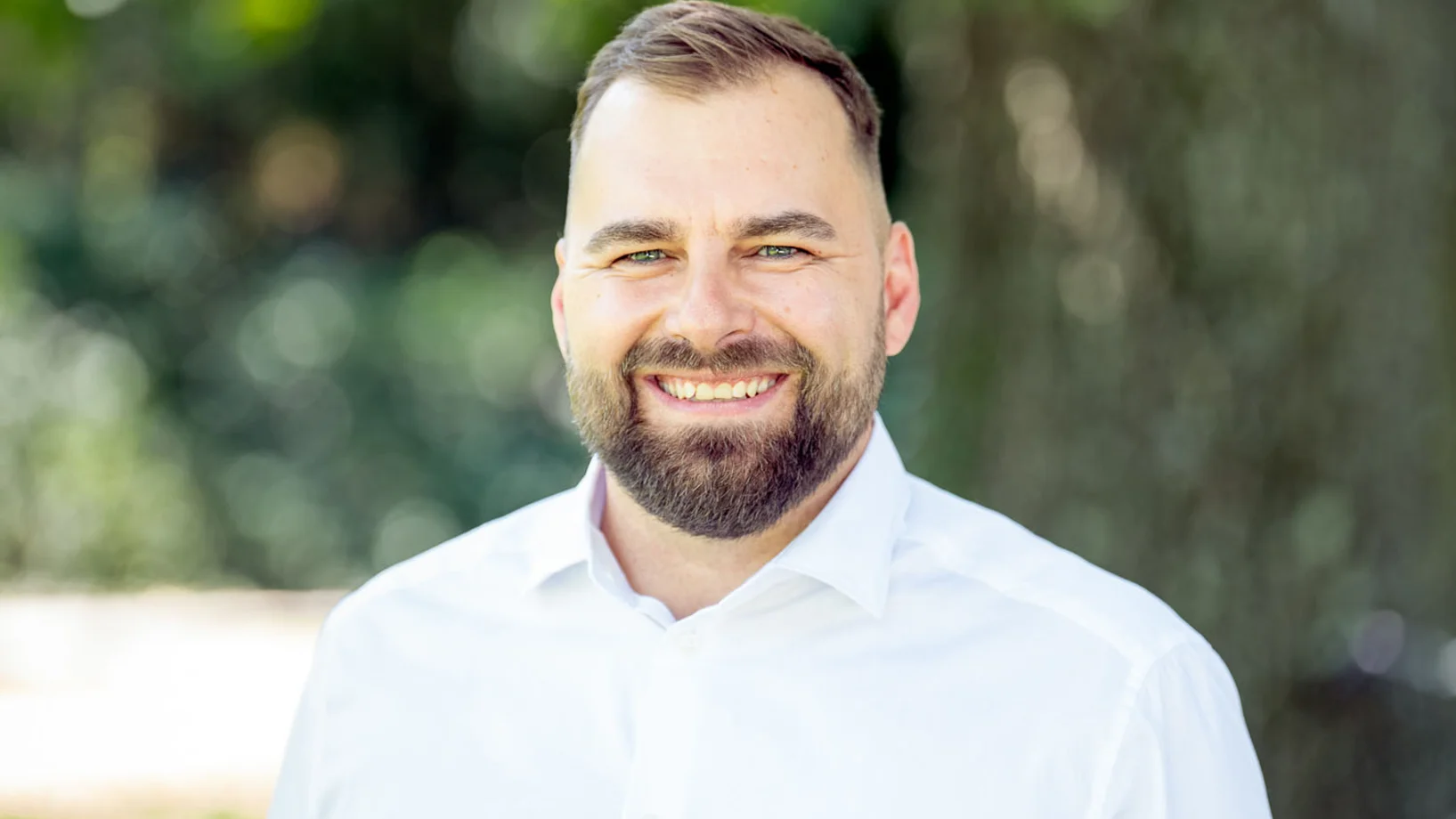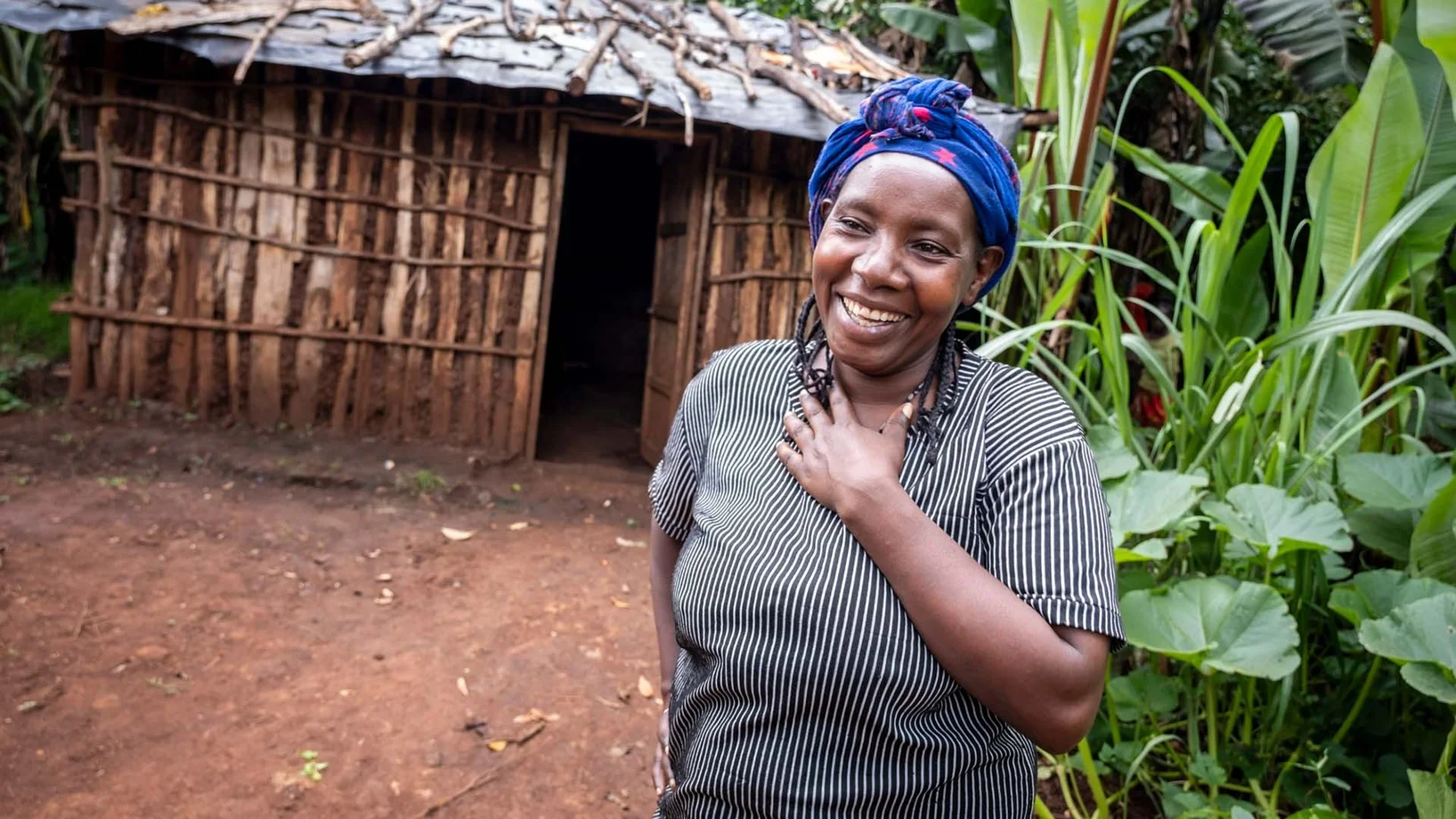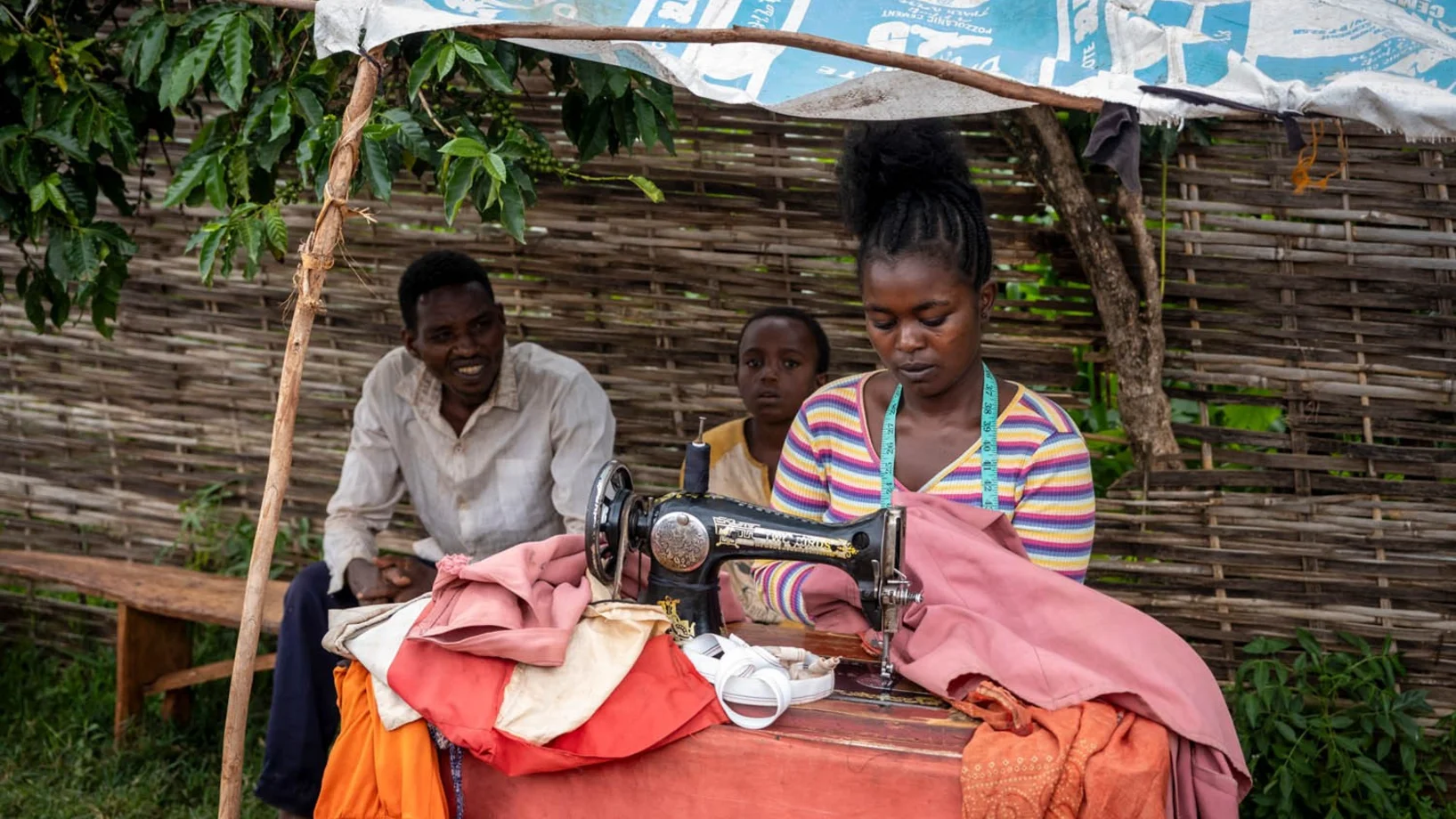Zurich / Hambela Wamena, February 6, 2024 - The Swiss aid organization Menschen für Menschen is starting its work in a new project area: Hambela Wamena is as big as the canton of Schwyz. In the remote district in southern Ethiopia, only eleven percent of people have clean drinking water. Agriculture on tiny areas cannot feed the population. Most families have to restrict their diet for many months of the year. Menschen für Menschen is now developing the district with local advisors who live permanently among the rural population.
It all started with an extensive basline study in the middle of last year. Local social scientists surveyed a total of 373 randomly selected families in Hambela Wamena. According to this, only one percent of the households surveyed in the southern Ethiopian district said they eat three meals a day. Because of poverty, people usually only eat twice. In the months leading up to the next harvest, many families have to cut down to one small meal per day. Three out of ten residents have to tighten their belts for up to four months. Almost seventy percent of families who do not have enough go hungry for five to eight months a year.
People mostly eat kotscho, a bread-like food common in Ethiopia that is made from the starch of the ensete (“false banana”). This one-sided diet hinders the children's development and endangers their health.
The biggest health risk for children is the water supply. Most families get their drinking water from watercourses and unsecured sources. Only eleven percent of people have access to wells.
Almost no infrastructure
At 871 square kilometers, Hambela Wamena is roughly the same size as the canton of Schwyz, but has 50,000 more inhabitants: In the Ethiopian district, around 214,000 people live with almost no infrastructure. Industry never settled. Craftsmanship only exists rudimentarily. Trade is restricted because there are almost no paved roads. During the long rainy season between April and October, the dusty slopes turn into mud slides on many days. There are no banks either. Small farmers only have the opportunity to get money from private lenders in order to buy seeds or fertilizer - at extortionate interest rates of 100 percent or more.
So they till their tiny fields inefficiently and harvest far less than they could. On average, families only have 0.6 hectares of land at their disposal - that's less than the area of a football field. Families with an average of seven members cannot be fed in this way.
Help for self-development
The findings from the baseline study were incorporated into the development of the project by Menschen für Menschen - the progress and success of the intervention can be measured using the data. The experiences in the neighboring districts of Abaya and Gelana are also important for the design of the aid measures. Menschen für Menschen has been active in a similar rural development project there for eight years and has been able to optimize activities during this time. “The key is always cooperation with the population,” emphasizes Kelsang Kone, managing director of Menschen für Menschen. “Change is only possible if day laborers and small farmers get involved themselves.”
The local project employees are also crucial for the project in Hambela Wamena. Ethiopian agricultural advisors and social workers live in the villages in the project area and work on an equal level with the population. This means that sensitive topics such as family planning can also be addressed.
The goal is to prevent poverty migration to the cities. The experts show small farmers modern and adapted farming methods and how they can diversify their harvests, for example with protein-rich legumes. Seeds and livestock are given out as a kind of loan through cooperatives. The farmers pay these inputs back to the cooperative within two years.
Saving together makes you stronger
Menschen für Menschen helps small farmers set up savings groups and cooperatives. In this way, families can avoid middlemen and free themselves from the exorbitant interest rates charged by private moneylenders.
In these associations, experts can also offer their training. “The soil is overused and partly eroded. We train farmers in protecting the topsoil,” explains Kelsang Kone. “We show them methods adapted to climate change, such as agroforestry, where coffee bushes and vegetables thrive under shade trees.” In addition, 16 new water points are to be built and ten wells are to be repaired in order to supply 4,000 people.
Families need planning
In addition to the agricultural training, the advisors provide information about family planning. Student clubs are being set up at 13 schools to provide information about reproductive health - so that women know which contraceptives they can ask for at state health stations and only have the number of children they actually want.
Within three years, the existence of 3,600 day laborer and small farmer families with a total of 25,000 members should be improved. The currently starving population should achieve better harvests and income in order to be able to lead a stable and dignified life in their home villages.
Über die Stiftung Menschen für Menschen
Menschen für Menschen setzt sich gegen Armut und Hunger ein. Die Stiftung wurde von dem Schauspieler Karlheinz Böhm (1928 – 2014) gegründet. Im Geiste des Gründers schafft das Schweizer Hilfswerk Lebensperspektiven für die ärmsten Familien in Äthiopien. Ziel der Arbeit ist es, dass sie in ihrer Heimat menschenwürdig leben können. Schwerpunkte der einzelnen Projekte sind Frauenförderung, Berufsbildung, Mikrokredite, Kinderhilfe, Familienplanung und landwirtschaftliche Entwicklung. Die Komponenten werden nach den lokalen Bedürfnissen kombiniert und mit sorgfältig ausgewählten einheimischen Partnern umgesetzt.
Download the image in HD quality and the media release as a PDF here:





